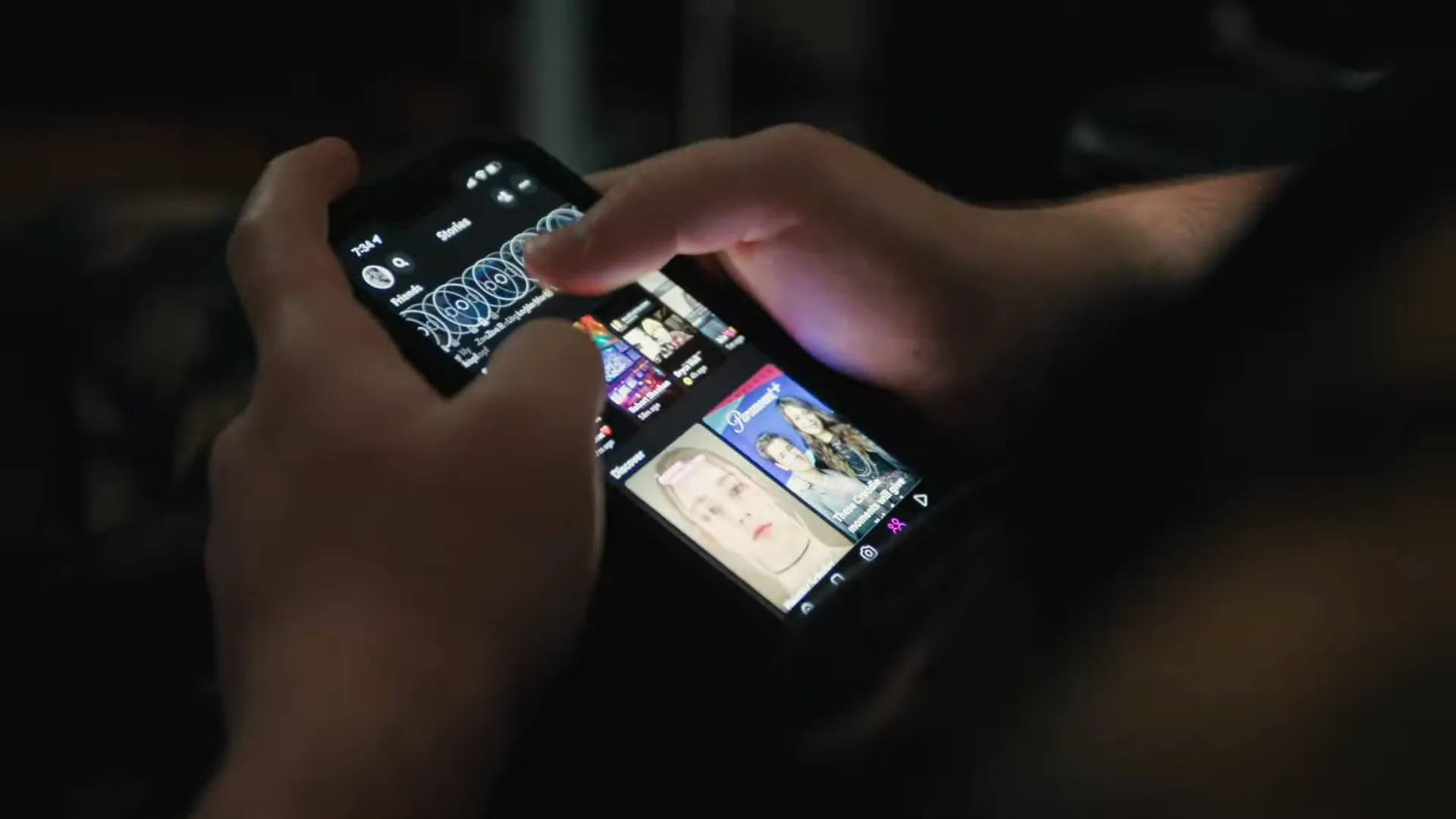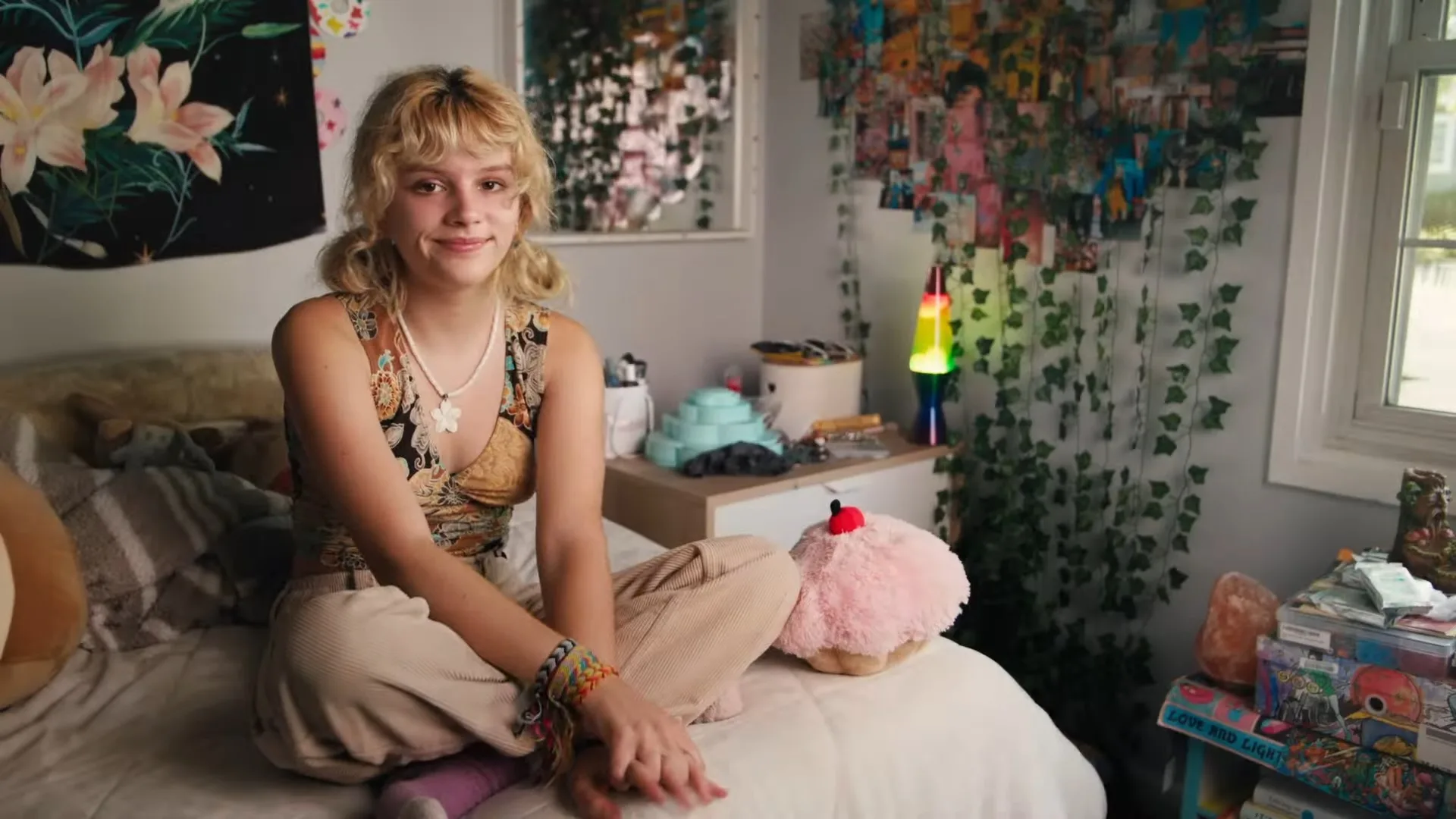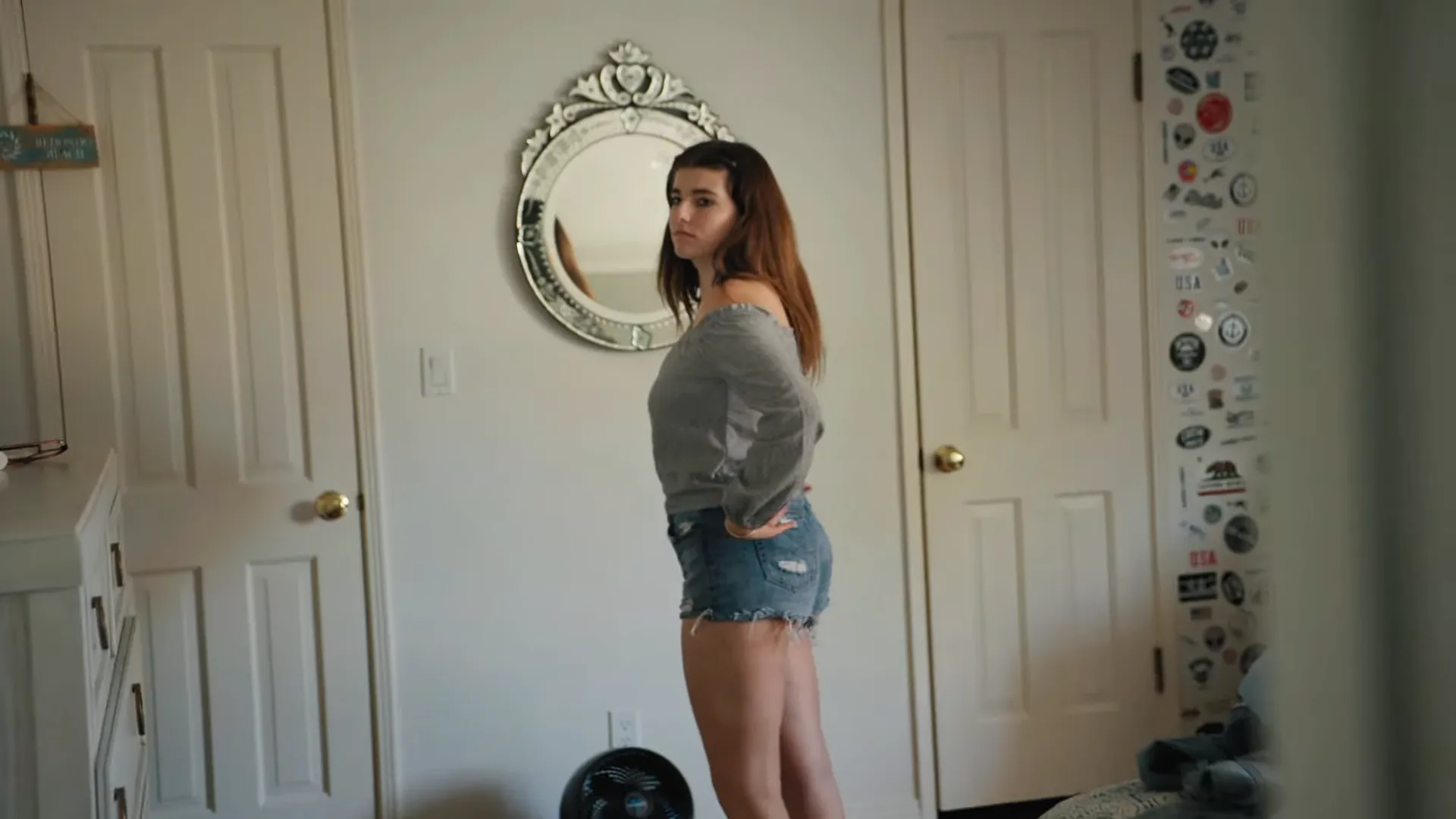Social Studies delves into the dangerous world of modern adolescence, capturing the trials and tribulations of teens navigating life after the COVID-19 pandemic.
The series focuses on their experiences returning to in-person school, which is fraught with anxiety and anticipation. This backdrop serves not only as a location but also as a character in its own right, reflecting the confusion many people feel in a world where the rules of interaction have changed overnight.
Lauren Greenfield, known for her sharp documentaries that question societal standards, directs Social Studies, which blends observational filmmaking and intimate storytelling.
Greenfield’s earlier works, like The Queen of Versailles, established her as a sharp observer of human behaviour; here, she trains her lens on a generation wrestling with the complexities of identity in a digital age.
Her production style is unique. She combines screen recordings with honest talks to create an immersive narrative that draws viewers into her subjects’ digital lives, blurring the border between observation and involvement.
The Social Fabric: Characters of Social Studies
In Social Studies, the ensemble cast of teenagers serves not only as documentary subjects but also as microcosms of a generation struggling with the duality of social media—a means of connection that frequently leads to isolation. Take Jonathan, for example.
He exemplifies the earnestness of youth while wielding a camera with a self-reflective lens (one could call him the poster kid for “meta-documentation”). His role goes beyond mere participation; he frequently serves as a voice of reason amidst the chaos of adolescent upheaval, striving to clarify the central thesis of their collective experience.
Then there’s Keshawn, the wannabe DJ whose life revolves around parenthood and party planning. His narrative arc reflects the contrast between aspiration and the backdrop of reality, where a rising music career meets the duties of early parenting. Keshawn’s story compels us to ponder the pressures imposed on young men in a culture that frequently idolizes youth and success—yet he navigates this terrain with a palpable sense of authenticity, a rare jewel in the often shallow world of TikTok fame.
Jack, the charismatic party planner, is possibly the most emblematic of the series’ study of social media’s alluring pull. His adventures, which range from boisterous parties to viral TikTok videos, demonstrate the performative character of adolescence in the digital era. However, beneath the bravado is a deeper message about the unstable nature of adolescent popularity—a theme reminiscent of Greek tragedy, where hubris frequently follows downfall.
The diversity of these characters—racially, socioeconomically, and experientially—serves as a fascinating backdrop for exploring contemporary youth’s numerous pressures. The series does not shy away from portraying their contrasts; rather, it weaves them together to show how social media amplifies both their struggles and triumphs.
Character dynamics are equally informative. Relationships are frequently transactional, driven by likes, shares, and followers rather than genuine emotional connection. Social media serves as both a bridge and a barrier, allowing interactions and encouraging misconceptions and insecurity. The group dynamics change like the algorithms that govern their online lives; one moment, they are allies, the next adversaries in the never-ending chase of digital validation.
This ongoing negotiation of identity and self-worth played out in real-time, reflects a larger societal issue: the loss of authentic connection in favour of controlled personalities. In a world where “friendship” is evaluated by the number of followers, what does it mean to know someone?
The characters in Social Studies provide a moving commentary on this problem, revealing the enormous impact of social media on their interactions and self-perception. As they navigate their turbulent lives, they become emblematic of a generation caught up in the digital age, where authenticity frequently takes a backseat to appearance.
Navigating the Digital Abyss: Major Themes in Social Studies
At the heart of Social Studies is a serious examination of mental health, a theme that resonates with disturbing clarity in today’s hyper-connected society. The series dives into the prevalent anxiety and despair that plague its young subjects, providing a striking portrait of a generation struggling to cope with the weight of self-imposed and societal expectations.
We encounter characters like Ivy, who openly state that she struggles with loneliness and the fear of face-to-face interactions after a lockdown. This is more than just a narrative device; it reflects a societal reality in which many young people feel increasingly isolated despite—or maybe because of—their continual digital connectivity. The series provides a compelling reflection on how the pressures of academic performance, social acceptance, and online presence can lead to mental health crises, reminding us that even seemingly insignificant exchanges can hold profound emotional weight.
As the youngsters navigate their intricate environments, their identities become inextricably linked with the digital personas they create. This leads us to the theme of identity and self-image, in which social media serves as both a mirror and a distortion lens. Characters struggle with self-esteem, frequently comparing their worth to the number of likes or followers they have.
The series poignantly depicts how platforms like Instagram and TikTok can distort ideas of beauty and desirability, particularly for young women who become entangled in a web of false expectations. Ethnic and gender identities exacerbate this, as characters reflect the additional burdens they bear in a society riddled with systematic inequities. For example, Marley’s experience in a predominantly white school highlights the alienation many students of colour feel when navigating spaces that frequently marginalize their presence.
However, the consequences of social media go far beyond individual fears. Cyberbullying emerges as a terrifying reality, a modern-day scourge that follows students into their homes, blurring the distinction between public and private misery. The series reveals the insidious nature of online abuse, where anonymity breeds brutality and the stakes of social interactions are dangerously high. The characters’ experiences represent a microcosm of a wider societal issue: the normalization of hostility in digital platforms, where empathy frequently takes a backseat to spectacle.
Furthermore, social media addiction is a major theme. In moments of discomfort, the characters constantly reach for their phones, which feels almost reflexive—a modern-day urge reminiscent of previous obsessions with new technologies. In this digital age, where the dopamine rush of alerts can overshadow real-life relationships, Social Studies invites us to consider what we lose in our obsessive search for online affirmation. The series sensitively captures the fragile balance between connection and isolation, causing viewers to ponder the implications of a society that increasingly values digital participation over actual personal touch.
Social Studies, with its nuanced portrayal of these themes, not only reflects the trials of its characters but also serves as a broader commentary on the 21st-century cultural landscape—where the quest for identity, the struggle for mental well-being, and the consequences of a digital existence intertwine in a complex narrative tapestry.
A Lens on Reality: The Documentary Style of Social Studies
Lauren Greenfield’s documentary style in Social Studies is both absorbing and frightening. She expertly captures the turbulent environment of contemporary adolescence. Her approach is distinguished by a blend of traditional observational approaches and unique visual storytelling, especially the strategic use of screen recordings.
This approach gives viewers a voyeuristic insight into her subjects’ digital lives as they navigate the complexities of social media with almost dizzying closeness. The screen becomes a window into their world, providing an unfettered look at their Instagram feeds, Snapchat conversations, and TikTok exploits. It’s a great choice that emphasizes the duality of modern life: public performances and private fears coexisting in the same digital realm.
Greenfield’s style, however, goes beyond simple observation. The genuine exchanges she captures, which frequently occur in natural settings like school hallways or intimate group discussions, add authenticity to the narrative. These conversations are more than just exposition; they reflect the raw, unfiltered feelings of teenagers struggling with their identities in an age when every idea can be broadcast to the world. This strategy allows the audience to sympathize with the subjects, feeling their triumphs and tribulations as if they were their own.
However, therein lies a problem. Greenfield’s technique encourages emotional connection but also narrows the line between voyeurism and authenticity. Sometimes, it’s difficult to tell if we’re watching genuine moments of vulnerability or just acting for the camera. As the teenagers discuss their struggles with mental health, identity, and relationships, there is an underlying tension—are they expressing their truths, or are they contributing to the narrative that social media has created around them?
This ambiguity prompts us to reflect on our media usage. In a world where personal suffering may be commodified and shared for clicks, Social Studies serves as both a cautionary tale and a mirror, reflecting the societal fixation with authenticity in a manicured landscape. It provokes strong emotional responses but also raises difficult considerations about the ethics of representation. Are we, as viewers, participating in a spectacle-driven system, or do we truly engage with these narratives?
Finally, Greenfield’s filmmaking method not only highlights the complexities of her subjects’ lives but also challenges us to reevaluate our relationship with the digital era—a world in which every moment is potentially a performance and authenticity is constantly contested.
Reflections of a Generation: Societal Implications in Social Studies
Social Studies is a captivating cultural analysis that mirrors the tumultuous terrain of current youth culture. It masterfully navigates the contradiction of connection and isolation, portraying a hyper-connected and painfully lonely generation.
The series highlights how the pervasiveness of digital media has changed the adolescent experience, changing rites of passage into public spectacles vulnerable to the constant scrutiny of social media audiences. In this world, where a misstep may result in viral disgrace, the stakes of adolescence feel disturbingly high.
The role of parents emerges as a key theme, with a mix of participation and detachment. Some parents try to comprehend their children’s online lives, but many stay blissfully oblivious, caught in their generational blind spots.
This relationship raises an important question: How do parental expectations and societal pressures shape teen identities in an era when “likes” can trump familial approval? The series skillfully demonstrates that, as youth wrestle with their personal narratives, they are also influenced by a backdrop of adult anxieties—college admissions, job paths, and an unwavering desire for achievement.
However, what Social Studies ultimately provides is not simply a portrayal of youth but a rallying cry for increased awareness and support. The program encourages viewers to reflect on their social media activities and the implications of a culture that frequently values online personalities over true connections. The series discreetly implies that understanding the complexities of adolescent life in the digital age is critical—not just for parents but for society as a whole.
The characters’ struggles reflect a larger societal crisis. Therefore, there is a palpable need for digital literacy and mental health services. Are we collectively prepared to support the emotional well-being of a generation that communicates via emojis and filters?
This question stays long after the credits roll, prompting viewers to engage more thoughtfully with the realities of modern adolescence. The importance of discussing social media’s role in influencing self-perception and interpersonal relationships cannot be stressed since Social Studies invites us to evaluate the future we collectively create for our youth.
Weaving the Story: Narrative Structure and Episode Breakdown in Social Studies
Social Studies is divided into five episodes, each carefully structured to investigate the diverse lives of its teenage subjects. The series begins with palpable anxiety as students return to in-person learning after a long period of isolation.
In the first episode, we see awkward reconnections and the underlying tension of social media’s pervasiveness. The first few weeks of school represent a microcosm of a larger societal struggle: how do we rebalance our social lives when the rules have changed?
As the series progresses, it explores each individual story further. Keshawn’s path, for example, highlights the combined pressures of new parenthood and pursuing a music career, capturing the clash between ambition and duty. In another episode, Jack’s wild party, which spins out of hand, serves as a crucible for exploring peer pressure and the consequences of risky action.
The narrative framework successfully contrasts personal development with theme investigation, revealing how each character grapples with identity, mental health, and the frequently harsh reality of digital interaction. By the final episodes, the storylines had converged, resulting in a tapestry of conclusions that, although not neatly connected, reflect the continuous complexities of adolescence. Characters face their issues, including Jonathan’s search for authenticity, Ellie’s turbulent relationships, and Sydney’s deal with her online persona.
However, the series resists easy judgments. Instead, it leaves viewers with lingering worries about the future of its characters, much like today’s unresolved challenges. The impact of Social Studies goes beyond its episodic pattern, prompting us to explore not just the narratives but also the cultural implications woven into the fabric of modern adolescence.
Final Thoughts on Social Studies
Social Studies emerges as a heartbreaking representation of the current adolescent experience, capturing the chaotic junction of identity, mental health, and social media’s ubiquitous effect.
Its significance is difficult to exaggerate, especially because it parallels the current struggles of a generation caught up in a digital whirlwind.
Watching this series is like looking into a cracked mirror—both illuminating and unsettling simultaneously. It provokes unpleasant reflection on our social media activities and the narratives we create.
The series challenges us to confront the subjects’ lives and our role in establishing a culture that frequently favours performance above authenticity.
The Review
Social Studies
Social Studies is an engaging and candid look at the complexities of adolescence in the digital age. Through its accurate portrayal of mental health, identity, and the consequences of social media, the series transforms into an important cultural critique that resonates powerfully with viewers. While it occasionally struggles with narrative concentration, its emotional depth and relevancy make it an important investigation of contemporary youth. Finally, it challenges us to reflect on the challenges of our digital lives and their impact on genuine human interactions.
PROS
- Offers a raw, unfiltered look at the lives of contemporary teens.
- Addresses pressing issues like mental health, identity, and the impact of social media.
- Features a wide range of characters from various backgrounds and experiences.
- Uses screen recordings and candid conversations to create an immersive viewing experience.
- Effectively evokes empathy and connection with the subjects.
CONS
- Occasionally struggles with thematic clarity and coherence.
- Some episodes feel meandering or disjointed, impacting overall flow.
- At times, it glosses over deeper explorations of complex issues.
- Raises questions about voyeurism and the ethics of documenting personal struggles.
- Leaves character arcs open-ended, which may frustrate some viewers.





















































